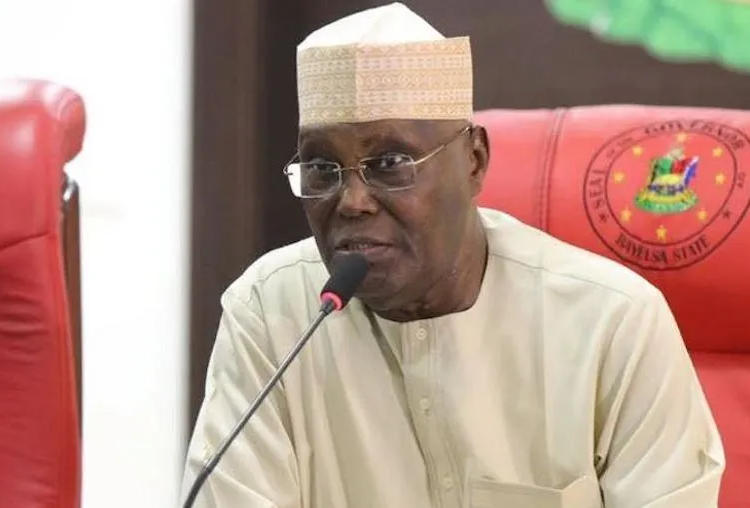The African Democratic Congress (ADC) has condemned President Bola Tinubu’s recent decision to grant presidential pardons to dozens of convicted drug traffickers and smugglers.
The ADC national publicity secretary, Mallam Bolaji Abdullahi, described the action as “pathetic and a national disgrace,” warning that the move undermines Nigeria’s anti-drug efforts, encourages crime, and further tarnishes Nigeria’s image in the eyes of the world.
Similarly, former Vice President Atiku Abubakar described the President’s action to pardon those convicted of drug trafficking, kidnapping, murder, and corruption as reckless.
In a statement, ADC spokesman Abdullahi said the president’s action amounts to a most irresponsible abuse of the presidential power of prerogative of mercy to grant express pardon, especially when most of these convicts had barely served two years in jail for offences that carry a penalty of life imprisonment.
“According to official media statements, it appears that all it takes to get presidential clemency for even the worst of crimes in Nigeria, including drug trafficking, gun running, and murder, is to ‘show remorse and learn skills.”
The party said pardons and clemency are granted for their social utility, to correct perceived miscarriages of justice, and to convicts who have paid their debts to society.
“But we wonder what Nigeria stands to benefit from this act of clemency to convicts serving life sentences who have barely served two years.”
The opposition party stated that Nigeria is still regarded as a significant transit point for illicit drugs. At the same time, we face a severe national pandemic of drug use, especially among our youth.
“Several reports have it that Nigeria’s drug use stands at an estimated 14.4 per cent, almost three times the global average of 5.5 per cent,” Abdullahi said.
He noted that for years, the National Drug Law Enforcement Agency (NDLEA) and other security agencies have risked life and limb to combat this problem, dismantle illicit drug networks, intercept consignments, prosecute offenders, and secure convictions only for President to free the people they caught.
“The men and women in these agencies have laboured under enormous risk and pressure to protect the public from the scourge of addiction, trafficking, and related crimes that carry some of the harshest penalties in Nigerian law, precisely because of their devastating impact on public health, youth development, and national security.
“Granting clemency to individuals convicted under such laws, therefore, strikes at the very foundation of Nigeria’s legal and moral stance against narcotics and makes a mockery of the gallant efforts of officers fighting the battle against narcotics and illicit drugs.
“These pardons also send reverberations beyond Nigeria’s borders. They undercut our standing among global partners in the fight against drug trafficking and give the unfortunate impression to the rest of the world that our country, under President Tinubu, has particular sympathy for drug dealers and that Nigeria is a risk-free jurisdiction for traffickers in narcotics.”
He added that with this mass clemency for drug dealers, President Tinubu and the APC were redefining the standard of morality in the country.
“They are gradually transforming Nigeria into a country where anything goes, where even the worst of crimes attract no punishment beyond a few months of inconvenience for the criminal to, by their assessment, “show remorse,” he said.
Tinubu’s Pardon emboldens criminality – Atiku
On his part, Atiku, who claimed that the recent presidential pardon provoked outrage across the nation, added that it undermines justice and emboldens criminality.
The former vice president said it was worrisome that 29.2 per cent of those pardoned were convicted for drug-related crimes.
In a post on X, Atiku said, “Ordinarily, the power of presidential pardon is a solemn prerogative, a moral and constitutional instrument designed to temper justice with mercy and underscore the state’s humanity. When properly exercised, it elevates justice and strengthens public faith in governance.
“Regrettably, the latest pardon issued by the Tinubu administration has done the very opposite. The decision to extend clemency to individuals convicted of grave crimes such as drug trafficking, kidnapping, murder, and corruption not only diminishes the sanctity of justice but also sends a dangerous signal to the public and the international community about the values this government upholds.”
Atiku said it was both shocking and indefensible that the presidency would prioritise clemency for those whose actions have directly undermined national stability and social order at a time when Nigeria continues to reel under the weight of insecurity, moral decay, and a surge in drug-related offences.
“Particularly worrisome is the revelation that 29.2 per cent of those pardoned were convicted for drug-related crimes at a time when narcotics are destroying our youth, and our nation is still struggling to cleanse its image from the global stain of drug offences.
“Even more disturbing is the moral irony that this act of clemency is coming from a President whose own past remains clouded by unresolved and unexplained issues relating to the forfeiture of thousands of dollars to the United States government over drug-related investigations. It is, therefore, no surprise that this administration continues to demonstrate a worrying tolerance for individuals associated with criminal enterprise.
“A presidential pardon is meant to symbolise restitution and moral reform. Instead, what we have witnessed is a mockery of the criminal justice system, an affront to victims, a demoralisation of law enforcement, and a grave injury to the conscience of the nation.”
Atiku, who said clemency must never be confused with complicity, added that when a government begins to absolve offenders of the very crimes it claims to be fighting, it erodes the moral authority of leadership and emboldens lawlessness.
He said Nigeria deserves a leadership that upholds justice, not trivialises it.





